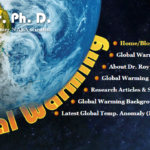Sinds Bjørn Lomborg zijn emoties op zij zette en hij zijn nuchtere vakgebied – de statistiek – ongebreideld en met verrassend resultaat losliet op de milieuthema’s, weten we dat als er één waakhond is voor pseudowetenschap, dat deze luistert en blaft naar de naam STATISTIEK. Daarom kijken we in dit bericht zeer serieus naar de constructieve voorstellen in de inzending naar het Brits Parlement van de Britse Royal Statistical Society (RSS).
Koffie-automaat
Uit mijn Wageningse tijd weet ik dat mijn mede-studenten statistiek als het voorportaal van de hel zagen en vaak al blij waren als ze met een zesje en zonder enig intrinsiek begrip van de materie dit vak voor eens en altijd achter zich konden laten. Sinds het illustere duo M&M – Stephen McIntyre en Ross McKittrick – de alarmistische klimaatwetenschap levend gegrilld hebben met hun statistische rigeur, weten we dat je statistiek niet serieus genoeg kunt nemen in het computertijdperk waar een gigabytes gecrunched worden als koffiebonen in de instutionele koffie-automaat.
Publiek toegankelijk datacenter
De RSS eist dan ook dat gebruikte onderzoeksdata en gepubliceerde onderzoeksresultaten überhaupt in een publiek toegankelijk datacenter moeten worden opgeslagen, zodat moeizame e-mailwisselingen en FOIA requests helemaal niet meer nodig zijn. De allermooiste IPCC-kritische formulering in de RSS-inzending is:
Het hoofdargument voor publicatie van data behelst dat wetenschap voortschrijdt als een lopend debat en niet door een reeks officiële profetische verklaringen en dat de kwaliteit van dat debat het best gediend is als alle partijen toegang tot de feiten hebben.
Hieronder de drie meest cruciale punten uit de inzending van de RSS naar de commissie van het Britse Parlement die de implicaties van de CRU-hack onderzoekt om klaar te zijn als de UEA-onderzoekscommissie onder leiding van Sir Russell Muir in het voorjaar met haar bevindingen komt (ook dit team heeft een inzending naar het Brits Parlement gedaan).
8. It is also clearly unreasonable to require that any given scientist having published some research is then condemned to answer each and every question that might possibly arise from it.. For example, requests under the Freedom of Information act or the Environmental Information Regulations could overwhelm small groups of scientists. To avoid this it is best if data are stored in data centres that are professionally run and properly funded.
9. More widely, the basic case for publication of data includes that science progresses as an ongoing debate and not by a series of authoritative and oracular pronouncements and that the quality of that debate is best served by ensuring that all parties have access to the facts. It is well understood, for example, that peer review cannot guarantee that what is published is ‘correct’. The best guarantor of scientific quality is that others are able to examine in detail the arguments that have been used and not just their published conclusions. It is important that experiments and calculations can be repeated to verify their conclusions. If data, or the methods used, are withheld, it is impossible to do this.
10. The RSS believes that a crucial step in improving the quality of the debate on global warming will be to place the data, the analysis methods and the models in the public domain.
Dit bericht is na publicatie doorgestuurd naar de Nederlandse Vereniging voor Statistiek en Operationele Research voor een officiële reactie.







Klinkt als een goed idee, een goede toegankelijke database bespaart wetenschappers zelf ook een boel werk.
werk=inkomen
Besparing op werk is dus ook een besparing op inkomen. Daar zullen de "wetenschappers" ook al niet blij mee zijn.
Maar de vraag is: Wie gaat het betalen? Met in het achterhoofd de claims dat het klimaatwetenschappers alleen maar om grant money te doen is.
De universiteit natuurlijk !
Het lijkt me dat alle onderzoek gewoon op servers van de uni komt te staan. Nu staat er ook al veel op, maar niet open voor publiek. Zet er per universiteit twee man "beheer" op, na een eerste inrichting van site en servers, en je bent klaar.
Waarom zou ik hier te simpel over denken? Nu hebben ze toch ook al een complete ict afdeling. Dit is maar een beperkte uitbreiding. Kan gewoon betaald uit afdelingsbudgetten. Hoeft niet duur te zijn.
NARCIS lijkt mij de aangewezen instantie:
http://www.narcis.info/index/tab/narcis
Of het e-Depot van de KB:
"In de repositories van de universiteitsbibliotheken, verenigd in DARE (Digital Academic Repositories) slaan Nederlandse universiteiten hun wetenschappelijke output op. Het is de bedoeling de publicaties uit deze repositories meerdere keren per jaar te harvesten en te archiveren en toegankelijk te maken in het kader van de depot functie van de KB. Met alle DARE-partners zijn daartoe in 2006 samenwerkingsovereenkomsten gesloten."
http://www.kb.nl/dnp/e-depot/operational/backgrou…